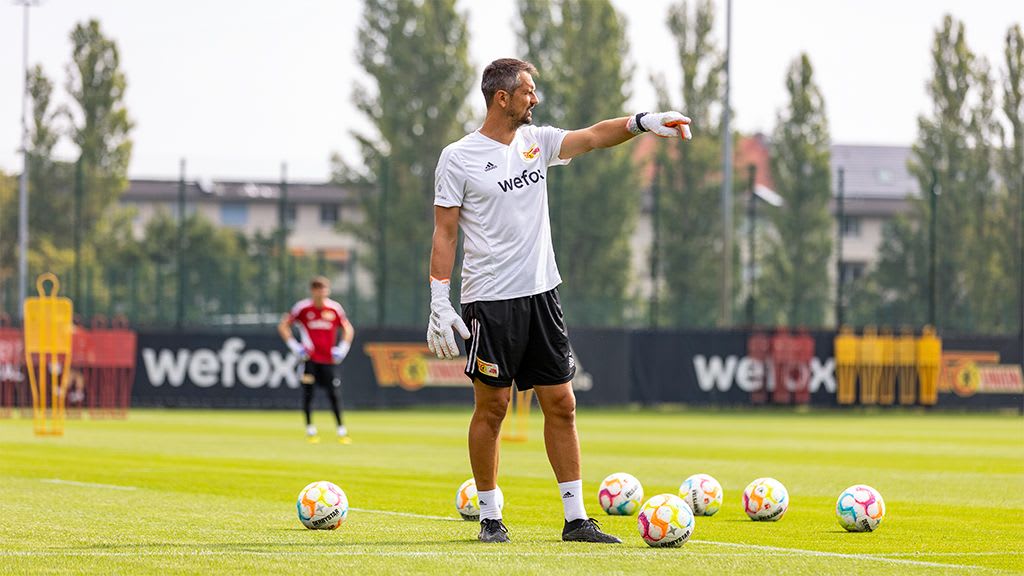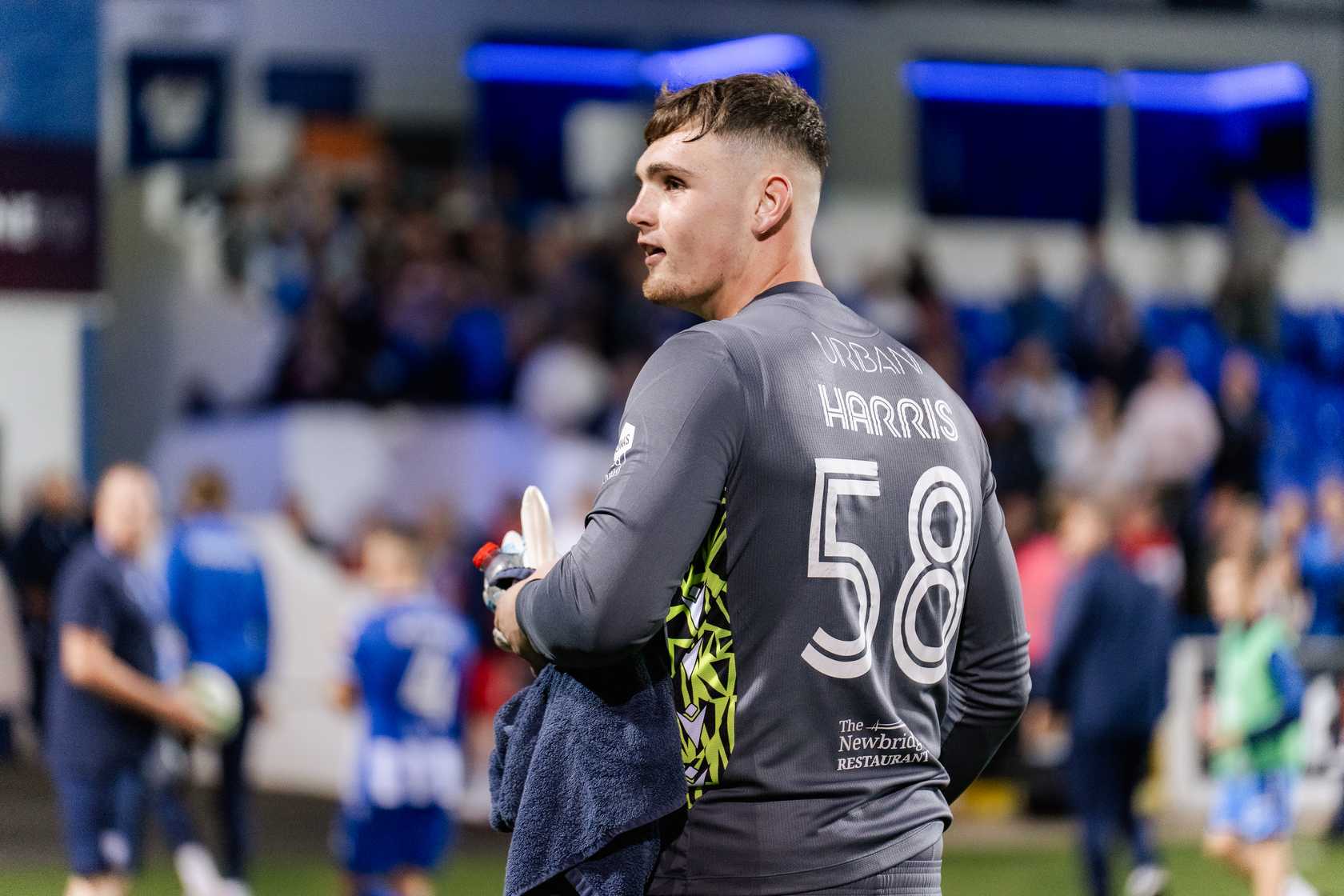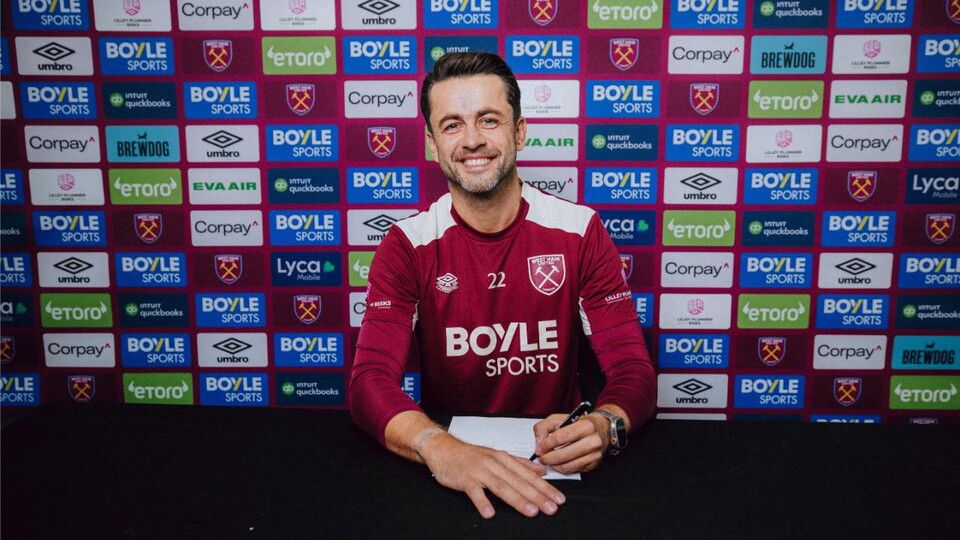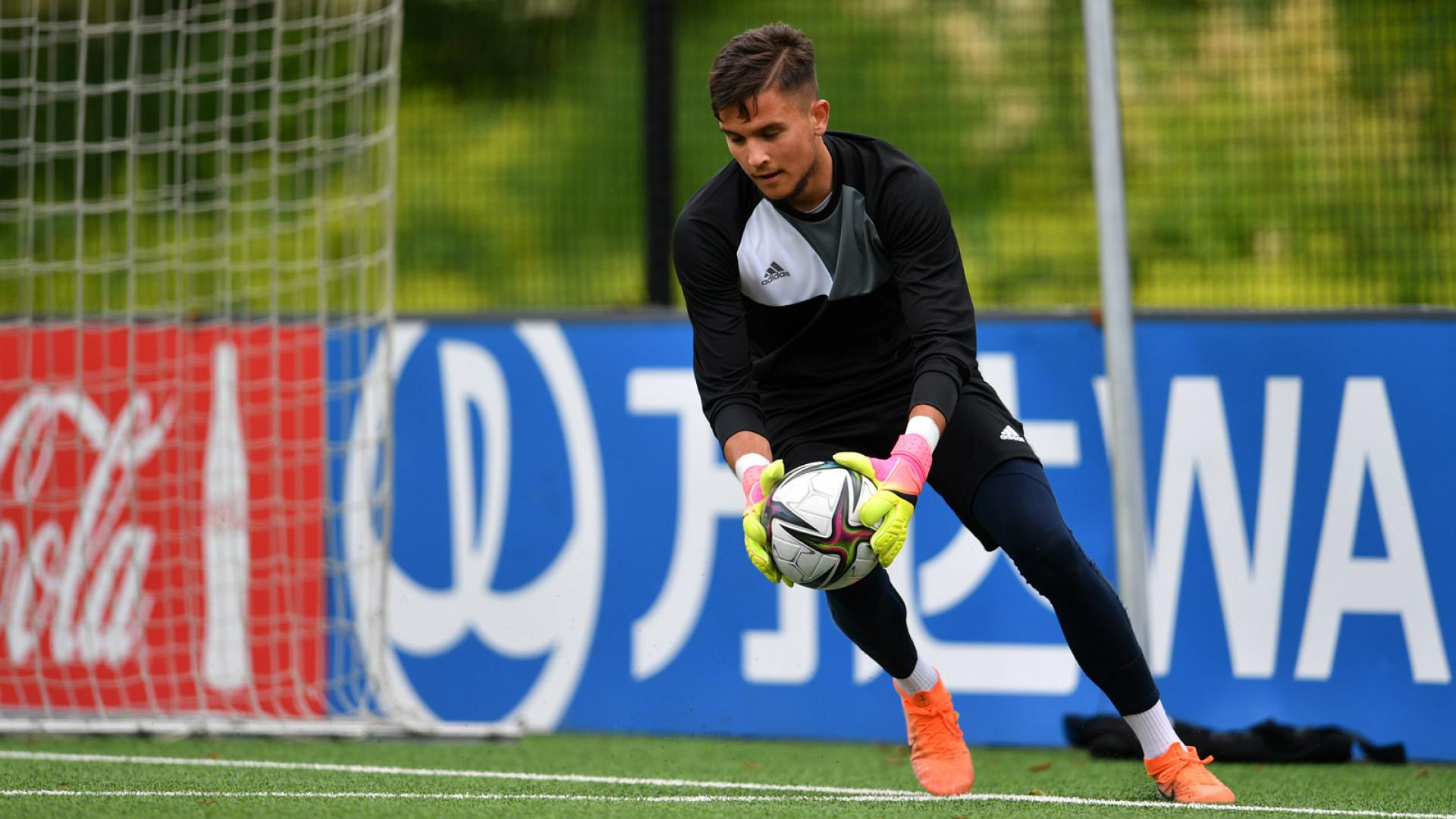Michael Gspurning has had an international career with clubs as well as country. Being open to cultures gives him a perspective beyond the penalty box.
Header Image: via Union Berlin.
“I think you don’t go looking for the position of goalkeeper. The position of goalkeeper looks for you,” says Michael Gspurning, a road warrior who has recorded plenty of mileage in Europe and the United States to fuel his passion. The current goalkeeping coach of Union Berlin is still married to the number one life having been born in Austria’s second city, Graz. The journey started like so many others; a meeting that was by accident rather than design.
“There is no other position that is as tough. When I was starting as a seven-year-old kid playing soccer, I didn't even think about the position at that time. I was tall – very tall- and I think it's a Cinderella story that happens so many times when there was no goalkeeper, and the coach asked me to stay. I tried it out, and I never left”, says Gspurning, speaking exclusively to Goalkeeper.com. The position fitted like a (goalkeeper’s) glove.
A former coach at Seattle Sounders called Gspurning “daring”. That makes total sense. The Austrian’s time in the MLS was his last major gig as a player. Unsurprisingly, the 6 foot 5 inch BFG took it with both hands in keeping with his proactive playing style and how he sees life – very much a “front-footed” goalkeeper. Gspurning came for crosses, had a big presence vocally, and loved to be part of Seattle, a team that has some of the noisiest fans in American soccer.
“I really enjoyed every station in my life when I was there. I mean, I spent many years in Greece. I didn’t know how long I would be there, but I wanted to learn the language, because if you learn the language and speak the language you start understanding the culture. It's so important,” he explains.
There were challenges, but much like Gspurning’s open-minded philosophy on coaching - where he says “the most important thing is to try, I test it out new ideas with the goalkeepers” - he took the bull by the horns to assimilate into different footballing cultures.
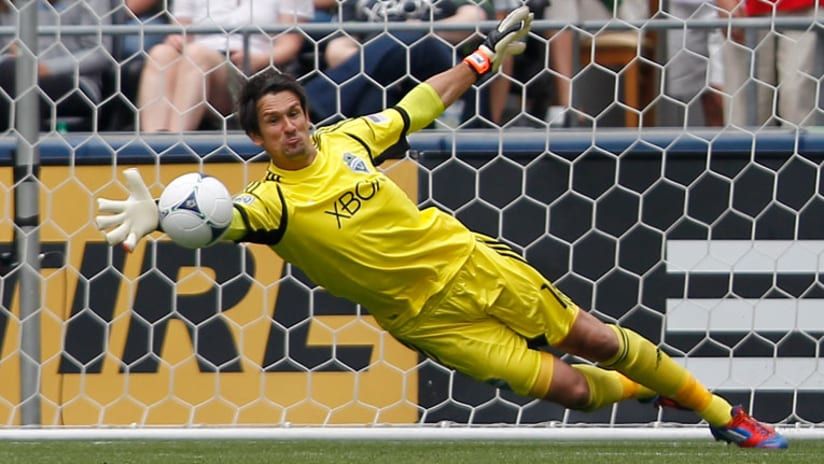
“If you're willing to learn the language, you don't learn it from day one on. It's more that you start conversations in English then you pick up some words and with the connection of the other people you get more and more into the other language. So if I was talking 100% English in the beginning, after three months it was 70% English and after one year maybe just 30% English and the rest was Greek.”
There were 17 years of a professional career, three caps for his country and an education of the mind and the body that has helped Gspurning become a more effective coach.
His nose for different environments is shaping the goalkeepers under his charge. “Frederik Rönnow is number one and he’s from the Danish school, I would call it, as he was playing for Brondby. Then I have Alexander Schwolow from Freiburg, who has 200 Bundesliga games. He is from a very German school. But I have to say, there is a lot of Austrian in me from my career, of course, and there is a Greek type of guy. There is always the positive thinking from America too!”
Coaching at the elite level may not provide the time for techniques any more, but rather it shapes and morphs with the customised characters, body shapes and backstory of the group. It’s not group think that works, but shared knowledge and trying different things.
That sense of connection, trust and being secure in mind is central to pushing boundaries. Taking constructive criticism and even having fun with it when the work, rest and play elements all helps progress.
“The goalkeeper can tell me everything, and that's very important. So one came to me at a certain point and said he was very tired in his mind. I said, Okay, thanks for letting me know, we will get through this. I give them the feeling here that everything is okay. On the other hand, I also give them my opinion. If a goalkeeper is not doing well in training, I just tell them, but I have the philosophy that if we go into positive things, we go with energy.”
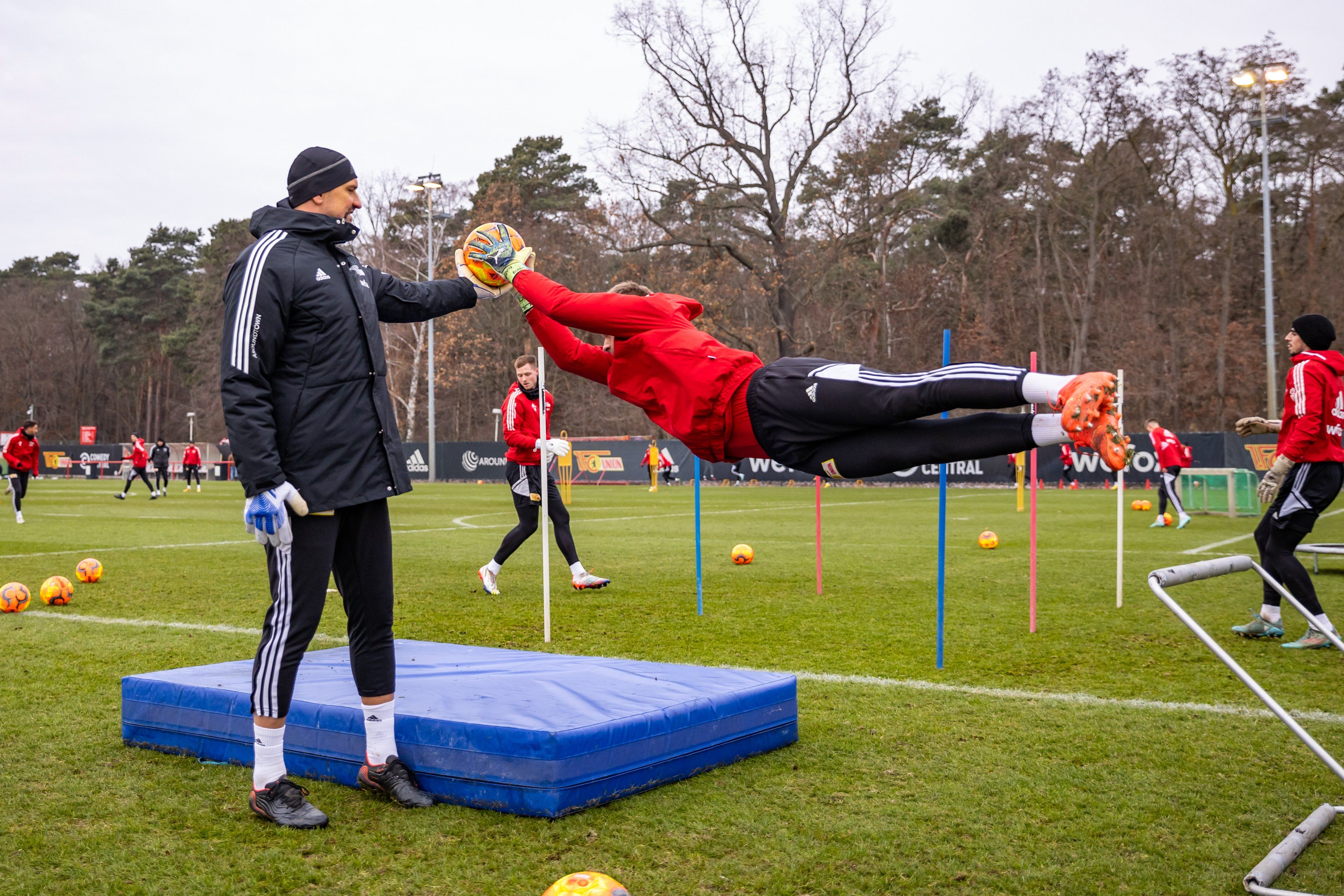
This reflective approach was something that Gspurning learnt from the start of his coaching career to be not only productive for the player, but necessary for him to be at his best as a coach. “The toughest question or the toughest part for me was in the beginning that I have to realize this is another person on the pitch.
“What he’s doing on the pitch if it's a mistake or something like this, at the beginning it hurt my feelings. But I had to learn that ultimately he is on his own to an extent there, and it doesn't mean when he is making a mistake that I have trained him badly during the week. We resume our job when we are back in the changing room and support him.”
A student of sporting crossovers, Gspurning has taken on board tales from other pursuits that have a stopper and how scenarios play out there, like handball in Germany and ice hockey during his time in America. As the famous Canadian ice hockey goaltender Jacques Plante said: “Only a goalie can appreciate what a goalie goes through.”
“I have a son at a certain age, he's 11, who is playing football, and in Germany they are very used to switching positions. I like this multiple sport [approach]. The kids should just move, play, and have fun. That's the most important thing. If a young kid is interested in being a goalkeeper at the age of eight, of course, then throw him the ball and he can move like a goalkeeper.”
Although the 43-year-old says he is a better coach than player, the initial move into the role came as a by-product of his time at Schalke, a club famous for producing Manuel Neuer. Gspurning was a mentor for the other goalkeepers on the books at first and began to enjoy the exchange of opinions. Gspuring also has a role with the Austrian national team, a different time and space to the day to day needs of Union Berlin.
“When I got the chance to become Austrian National goalkeeper coach, under Ralf Rangnick, it was a no-brainer for me, because all the circles were closing. I was a national team player for Austria. I had three caps, and then to get the chance to work with such a big coach, and in a new coaching staff, I felt I needed to do it because I'm a person who always wants to achieve more, to grow, to learn.”
That much is true. The enthusiasm that emanates from Gspurning is very natural. The dual roles give him extra turbo boost. The manner in which he approaches possible candidates for the national team role clearly has a positive effect.
“We're really close, so I call them or text them every two weeks, for example. I don't want to text after every game but it’s important that you stay connected, that I know what is going on. I got a very big compliment from one goalkeeper to say, hey, it's always fun to come here and to train like this. And I like this exchange.”
Transparency is key to Gspurning’s approach, especially in the digital age. While some criticise the openness of social media, he can also see its potential for positive impact.
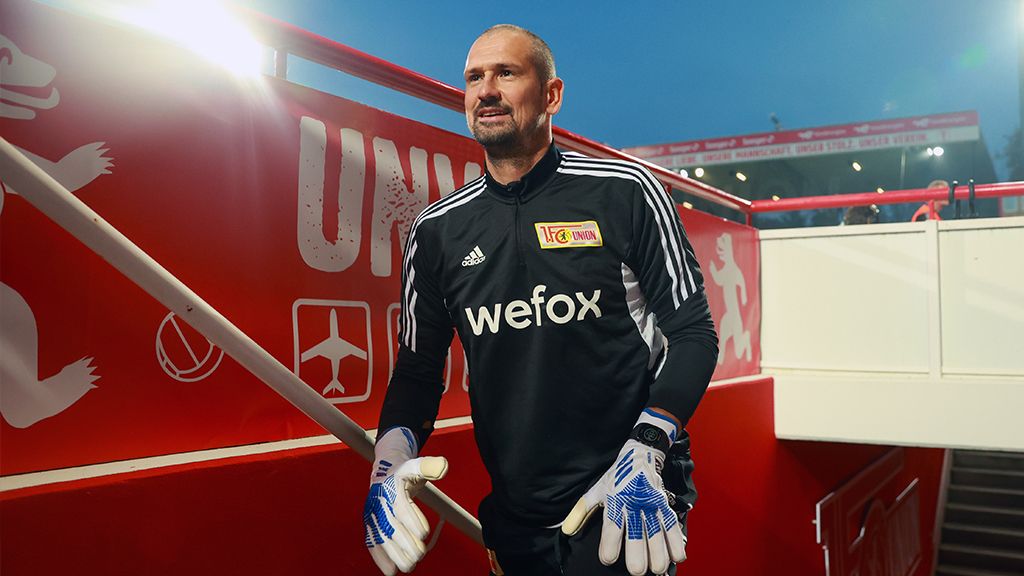
“I’m a coach, not an influencer - no doubt about that,” he says. “First and foremost, remember: 'less is more.' Avoid sharing sensitive information about your work at the club. However, if you consider this and believe that sharing insights and ideas from goalkeeping experts can contribute to mutual learning and help the community advance the game, then it could be a step worth taking.”
Despite his achievements and strong reputation, Gspurning remains focused on growth and new challenges. “Coaching in the Premier League is certainly a target for me,” he explains, “and I’m working to ensure I’m ready if the opportunity arises. Working at the highest level is what I am striving for”
Gspurning understands better than anybody how doubts can affect the mindset of the goalkeeper. Trying to reset in a game has been covered elsewhere on this site and in so many community notes. What is important for any aspiring youngster is the confidence to just do it.
“I would teach all my students: ‘Don't think, just do it’. And this is one thing I would also advise everybody: if you're convinced it's correct, go for it. If it doesn’t work out, then you have learnt something and you can react.”
That’s an education in itself.
